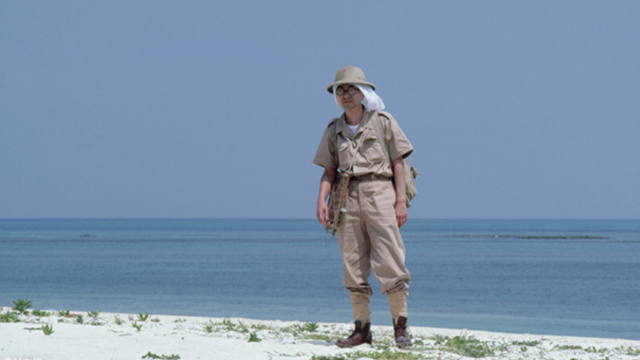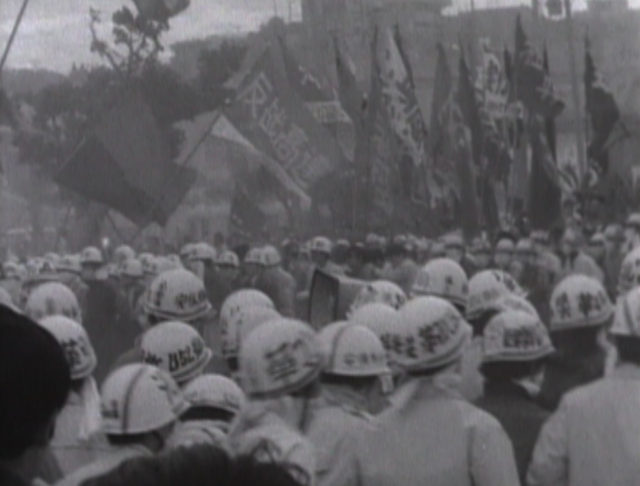
Go Takamine’s Paradise View kicks off Japan Society series about the Okinawan transition
VISIONS OF OKINAWA: CINEMATIC REFLECTIONS
Japan Society
333 East 47th St. at First Ave.
May 13 – June 3, $15 in-person screenings, $10 online rentals (three-film pass $24)
www.japansociety.org
“Did you have your fortune told?” a character asks in Go Takamine’s Paradise View. “Yes, things are looking good” is the answer.
On June 17, 1971, the last of the Ryukyu Islands was returned to Japanese control. Japan Society began its celebration of that pivotal event in March with “Waves Across Time: Traditional Dance and Music of Okinawa.” The tribute continues May 13 to June 3 with “Visions of Okinawa: Cinematic Reflections,” consisting of five in-person screenings and three streaming films, all set around the transition of power. Part of the “Okinawa in Focus: Globus Film Series,” the festival begins May 13 at 7:00 with the North American premiere of the 2021 edit of Go Takamine’s Paradise View, followed by a reception; the 1985 work, which deals with a funeral, a wedding, dangerous snakes, and painful dentistry, will be available for streaming starting May 14.
Chris Marker’s 1996 Level Five, a French film involving a computer game restaging the Battle of Okinawa as part of an investigation into the Japanese tendency to bury the past, will be shown May 14 at 4:30, followed at 7:00 by a rare archival 35mm print of Nagisa Oshima’s 1972 Dear Summer Sister, in which Oshima, who appears in Level Five, takes viewers on an unusual tourist trip across Okinawa. Sadao Nakajima’s 1976 Terror of Yakuza, inspired by actual gang warfare on Okinawa and starring the great Sonny Chiba, screens May 20 at 7:00; an imported 35mm print of Go Takamine’s 1989 Untamagiru, an adaptation of the uchina shibai play and featuring John Sayles as a US military commander who really loves his dog, will be shown May 21 at 7:00.

Motoshinkakarannu explores the complicated transition of power on Okinawa
The virtual screenings also include the special “Focus on the Nihon Documentarist Union (NDU),” a pair of black-and-white guerrilla-style nonfiction works by the NDU, which was founded in 1968 at Waseda University. The 1971 Motoshinkakarannu and 1973 Asia Is One are screening for the first time outside of Japan, with new English subtitles, taking on immigration, socioeconomic issues, labor protests, and other complex issues.